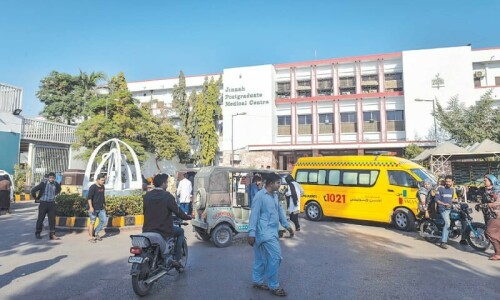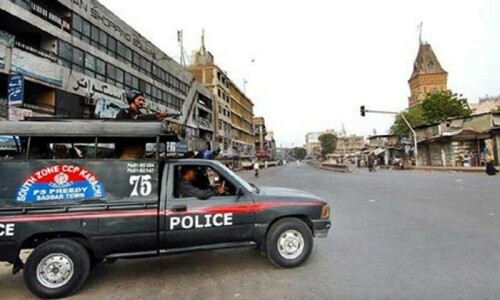KARACHI: The Sindh Assembly was informed on Tuesday that inspectors of the agriculture department regularly visited fields to check the menace of fake and adulterated fertiliser.
Responding to lawmakers’ written and verbal queries during Question Hour in the house, Minister for Agriculture Ismail Rahu said that the distributors who were found selling substandard or adulterated fertilisers were fined.
Pakistan Tehreek-i-Insaf (PTI) lawmaker Khurram Sher Zaman on behalf of his absentee colleague, Sidra Tahir, had asked whether there was any authority to check quality of fertiliser and address farmers’ complaints in this regard.
In reply to a supplementary question asked by Mr Zaman, the minister said that the licence of a distributor firm could be cancelled if it was found involved in marketing substandard fertiliser.
The minister said that the director of plant protection department and directors, additional directors, deputy directors and officers of the agriculture department were notified as fertiliser inspectors and they regularly visited fields to check the product’s quality.
He said that there were 83 fertiliser distributors registered with the agriculture department.
In reply to a verbal question, asked by another PTI lawmaker, Arsalan Taj, Mr Rahu said that there were 13 laboratories in the province to examine the quality of fertilisers marketed by distributors.
He said that the provincial government had planned establishment of a laboratory in every district of the province.
Answering another question, asked by Grand Democratic Alliance lawmaker Arif Mustafa Jatoi, the minister gave a break-up of production of sunflower over the last 10 years. He said that 259,200 tonnes of sunflower was produced in 2009, 341,641 tonnes in 2010, 187,379 tonnes in 2011, 150,140 tonnes in 2012, 137,602 tonnes in 2013, 130,740 tonnes in 2014, 54, 134 tonnes in 2015, 69,305 tonnes in 2016, 64,659 tonnes in 2017 and 75,267 tonnes in 2018.
In reply to a question, Mr Rahu said that properties of the fruit and vegetable market in Karachi and other parts of the province were not occupied by their committees’ chairmen or their employees.
To a supplementary question, he said that the market committees did not have the authority or mandate to fix the prices of the commodities. He said that the prices were notified by the Bureau of Supply and Prices.
He said that there were in all 71 markets across the province. There were 15 market committees in different major districts, including Karachi, Dadu, Mehar, Sanghar, Naushahro Feroze and Jacobabad.
In reply to a verbal question, he said that market committees were also being established in other districts.
Published in Dawn, September 25th, 2019











































Dear visitor, the comments section is undergoing an overhaul and will return soon.